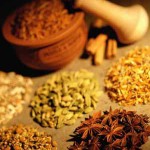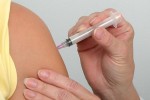Would it not be incredible if there was a way to prevent peanut allergies in children or to reduce asthma in children? I think everyone would agree this would be a worthwhile medical development, certainly news worthy. Researchers have been studying Chinese herbs for years and are now able to prove that two specific herbs used in Traditional Chinese Medicine (TCM) can reduce the inflammation response that occurs with allergies. This is especially important since food allergies and peanut allergies have been on the rise in children.
If I child goes into a anaphylaxtic shock as a result of a peanut allergy it is always a serious event. A study recently done on two Chinese herbs; Rubia cordifolia (Qiancao) and Dianthus superbus (Qumai) has the potential to save lives. Researchers at Mount Sinai Medical Center have studied how these herbal extracts can suppress IgE production and prevent peanut-induced anaphylaxis.
Study Results
"Rubia cordifolia and Dianthus superbus inhibited the in vitro IgE production by a human B-cell line in a dose-dependent manner and the in vivo IgE production in a murine model of peanut allergy without affecting peanut-specific-IgG1 levels. After challenge, all mice in the sham groups developed anaphylactic reactions and increased plasma histamine levels. The extract-treated mice demonstrated significantly reduced peanut-triggered anaphylactic reactions and plasma histamine levels."
"The extracts of Rubia cordifolia and Dianthus superbus inhibited the IgE production in vivo and in vitro as well as reduced anaphylactic reactions in peanut-allergic mice, suggesting potentials for allergy treatments."




